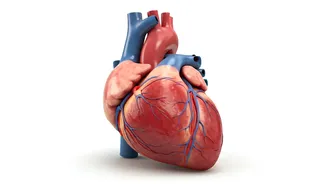Avoid After 30
According to the advice of a heart surgeon, there are several key actions that individuals, particularly those over the age of 30, should avoid to proactively
protect their heart health. The first highlighted area of concern involves the overconsumption of processed foods high in sodium, trans fats, and added sugars. These elements can contribute to high cholesterol, high blood pressure, and inflammation, thereby increasing the likelihood of heart disease. Furthermore, the expert emphasizes the importance of avoiding a sedentary lifestyle. This means incorporating regular physical activity into daily routines, since prolonged sitting or inactivity can lead to weight gain, elevated blood pressure, and decreased cardiovascular fitness, all of which are detrimental to heart health. In addition, excessive alcohol consumption is a practice to be minimized. Heavy drinking can damage the heart muscle, leading to conditions like cardiomyopathy and increasing the risk of irregular heartbeats. Finally, smoking and exposure to secondhand smoke are strongly discouraged. Smoking damages blood vessels, raises blood pressure, and significantly increases the risk of heart attacks and strokes. Avoiding these practices after age 30 can be a major factor in maintaining a healthy heart.
Dietary Modifications
Significant adjustments to the diet can play a crucial role in preventing heart disease, as highlighted by expert recommendations. The article suggests focusing on a diet rich in fruits, vegetables, whole grains, and lean proteins, while simultaneously limiting the intake of saturated and trans fats found in processed and fried foods. Increasing the consumption of fiber-rich foods, such as oats, beans, and lentils, is also recommended because fiber helps lower cholesterol levels, promoting heart health. Additionally, incorporating foods rich in omega-3 fatty acids, like salmon and walnuts, can reduce inflammation and improve cardiovascular function. In contrast, it is essential to minimize the consumption of added sugars and refined carbohydrates, which can contribute to weight gain, high blood sugar, and increased triglyceride levels, all risk factors for heart disease. Furthermore, managing portion sizes and paying attention to caloric intake is critical for maintaining a healthy weight, which is another significant factor in reducing the burden on the heart and improving overall cardiovascular health. By implementing these dietary modifications, individuals can substantially reduce their risk of heart disease and foster long-term cardiac well-being.
Exercise Regularly
Consistent physical activity is another critical element in preventing heart disease. The article underscores the need for regular exercise, recommending at least 150 minutes of moderate-intensity or 75 minutes of vigorous-intensity aerobic exercise per week. Engaging in activities like brisk walking, jogging, cycling, or swimming can significantly improve cardiovascular health by strengthening the heart muscle, lowering blood pressure, and managing cholesterol levels. The guidance also suggests incorporating strength training exercises at least twice a week. These exercises can help build muscle mass, which boosts metabolism and contributes to weight management. Furthermore, the article stresses the importance of consistency; making exercise a regular habit is more beneficial than sporadic, intense workouts. Even small increments of physical activity, such as taking the stairs instead of the elevator or going for a short walk during breaks, can make a positive impact. By integrating regular exercise into a lifestyle, individuals can effectively reduce their risk of heart disease and improve their overall health.
Regular Health Checks
Regular health check-ups and screenings are vital for the early detection and management of potential heart problems. The article emphasizes the importance of routine visits to a healthcare provider, who can monitor key health indicators like blood pressure, cholesterol levels, and blood sugar. These check-ups allow doctors to identify risk factors early and implement preventative strategies. For instance, high blood pressure and high cholesterol often do not present noticeable symptoms until they have progressed significantly. Routine screenings can detect these conditions early on, enabling timely intervention and management through lifestyle adjustments or medication. Regular blood tests and other diagnostic tools, such as electrocardiograms or stress tests, may be recommended to assess the heart's function and identify any underlying issues. The advice stresses that early detection can prevent serious complications and improve the chances of successful treatment. Therefore, scheduling and adhering to regular health check-ups are essential for proactively managing heart health and minimizing the risk of heart disease.













